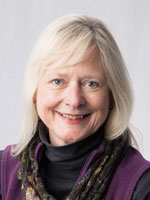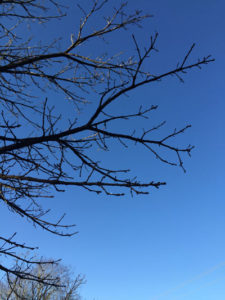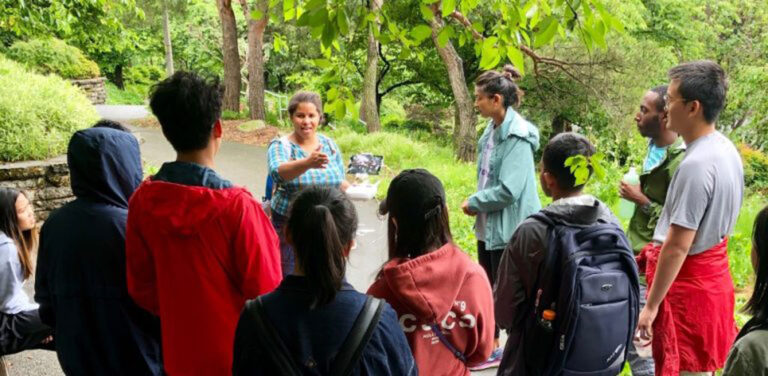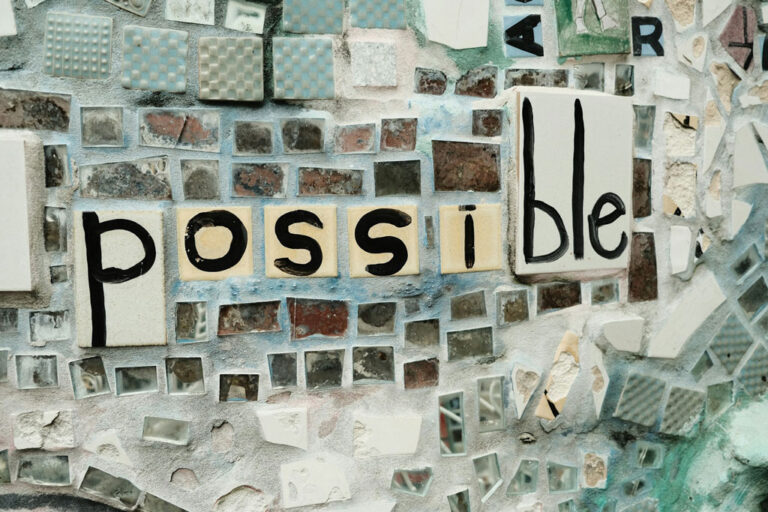Bias and Consideration
 Now is the winter of our discontent. I have always liked that line, the first of King Richard III. I know it is not really about winter, but it has always evoked for me the vaguely uncomfortable feeling I have during this season. It is cold, the days are short, and all I want to do is hibernate. But here in Texas we are seeing the first signs of spring. Yes, at the end of January. The robins are back, passing through on their way north; the narcissuses are about to bloom; and the trees are budding. Hope is in the air as I write this column. So let me write about two different topics, hiring and award selection. I promise to end each topic with an optimistic twist.
Now is the winter of our discontent. I have always liked that line, the first of King Richard III. I know it is not really about winter, but it has always evoked for me the vaguely uncomfortable feeling I have during this season. It is cold, the days are short, and all I want to do is hibernate. But here in Texas we are seeing the first signs of spring. Yes, at the end of January. The robins are back, passing through on their way north; the narcissuses are about to bloom; and the trees are budding. Hope is in the air as I write this column. So let me write about two different topics, hiring and award selection. I promise to end each topic with an optimistic twist.

First, I am conscious of the anxiety and discontent of many young geographers who are completing their dissertations (stressful enough on its own) and applying for academic positions or other employment. Hiring is one of the most important things that a department does and yet we often do it without much reflection or consideration of the applicants. Tradition drives the process and I think we become a little callous. After all, we have been through the process ourselves and survived. In the last few months, as I have traveled and talked to many young people, I have heard incredible hiring stories. The Chronicle of Higher Education has had a series of columns about hiring entitled, “Academic Job Hunts from Hell” that confirm what I have heard, especially about faux searches, that is, searches with a favored internal candidate, and cringe-worthy, uncomfortable job interviews fraught with illegal (and downright offensive) personal questions and comments. It occurs to me that we may not be conscious of how inconsiderate—or inappropriate—we are.
We are also not conscious of the forms of implicit bias we practice in the hiring process. Project Implicit, a research project housed at Harvard, offers a series of tests and resources related to implicit bias. We are all biased, but these tests help us to understand our predilections or shortcomings. The classic study, Why So Slow by Virginia Valian, is a great resource for all geography faculty engaged in hiring. Too often we self-censor our selection process. We think, for example, a single young woman won’t be “happy” in a small, remote college town, so don’t select that person. We reject individuals who we perceive won’t “fit” early in the process rather than leaving it up to the applicant to make a decision. So we have two issues: inconsiderate hiring practices and inherent biases in hiring procedures.
The positive twist here is that there are resources and guides to assist in the process. Nothing will stop some of your colleagues from asking awkward questions or being biased, implicitly or explicitly, but you can work to improve the process for everyone. A recent Chronicle article, The Art of Rejection, offers suggestions about how to write a kind and gentle rejection letter, for example. In addition, the Job Hunts from Hell series, while written from the perspective of applicants, offers sage advice for the interviewers. Finally, the NSF-funded ADVANCE program at the University of Michigan is a treasure trove of best practices in hiring, including applicant and candidate evaluation forms. The use of uniform assessments in the hiring process is one proven way to counter bias.
Second, and related to my comments about bias, I received generally positive responses to my suggestion to initiate an AAG Fellows honors program. Several people, however, expressed concerns about equity and equality in the selection process. How will this not perpetuate existing elites, I was challenged. Can we formulate a program that truly recognizes a range of contributions to our profession? As part of the program proposal development, I have researched other professions’ programs and resources related to equity in selection of professional awards. The American Psychological Association hosts workshops at its annual meetings to assist Fellows nominees and to train selection committees. The University of Michigan provides a particularly useful document outlining both the principles that should guide award selection processes and best practices. The principles include fairness, inclusiveness, and accountability. To ensure equity, if this program is initiated, we will have to ensure that the pool of nominees is as broad as possible, and not just “the usual suspects.” Another key principle will be education to counter bias. We will have to ensure that the group of people making the selection process are prepared to grapple with their personal, academic, and institutional prejudices.
It is here that best practices come into play. We will have to appoint or elect a diverse selection committee, specify clear criteria for selection, and have a process that is open and transparent, with multiple ways for individuals to be nominated. The decision-making process will have to abide by the stated principles, be thoughtful, inclusive, and respect the perspectives of all committee members. I am writing this, which is probably obvious, to let you know that Council will be taking all of these ideas into account when they consider a Fellows Program. So the positive twist is that while prejudice and bias persists, there are strategies and resources to work against their pernicious effects. Hope springs eternal in the human breast.


